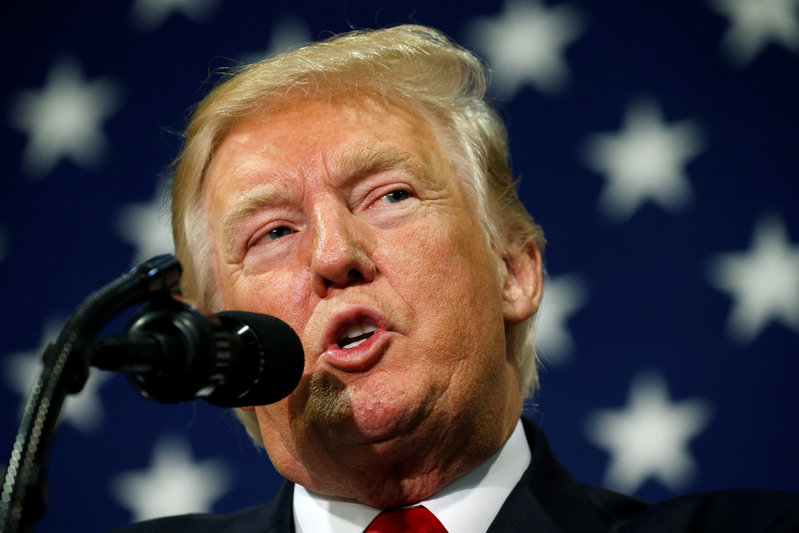- The Trump administration and congressional Republicans are expected to come out with a bill to overhaul the US tax code on Thursday. Among other changes, the bill is expected to include a one-time repatriation tax. The repatriation tax is designed to to incentivize US-based companies that do business overseas to bring their profits back stateside. Once that cash is back in the US, companies can do several things, including reinvesting in their businesses or stock buybacks.
The Trump administration is expected to debut a bill to overhaul the US tax code on Thursday.
The bill is expected to include a one-time repatriation tax, which is designed to incentivize US-based companies that do business overseas to bring those profits back stateside.
In other words, the repatriation tax could lead to internationally-held cash flooding back into the US.
The Wall Street Journal is reporting that the repatriation tax will be as high as 12%, which is slightly higher than the 10% officials had previously suggested back in April. But it's below the current 35%, which incentivizes companies to keep their money abroad.
In late September, US President Donald Trump and the "Big Six" group of Republican negotiators - National Economic Council Director Gary Cohn, Treasury Secretary Steven Mnuchin, Senate Majority Leader Mitch McConnell, Sen. Orrin Hatch, House Speaker Paul Ryan, and House Ways and Means Committee Chairman Kevin Brady - rolled out a detailed look at what the tax plan will likely entail.
That preview included an outline of changes to the repatriation tax. It said that all overseas assets from US-owned companies would be considered repatriated and taxed at a one-time lower rate. Illiquid assets like real estate, meanwhile, would be taxed at a lower rate than cash or cash equivalents, and the payments would be spread out over time.
Looking at all US-based companies, Citigroup says there's about $2.5 trillion worth of capital stashed internationally. Goldman Sachs, meanwhile, calculated back in September that S&P 500 companies hold $920 billion of untaxed cash overseas, and the firm estimated that $250 billion of that would be repatriated.
There are several things that companies can do with that cash once it's back in the US. They can reinvest into core businesses, which is probably the option policymakers would prefer since it might lead to economic growth. Alternatively, companies can repurchase their shares, which would be a boost for the stock market. (Remember, however, the stock market is not the economy.)
The last time the US government issued a repatriation tax holiday in 2004, corporations primarily spent the money on buybacks. This time, however, Wall Street thinks things will be different, as Business Insider's Joe Ciolli reported earlier.
Bank of America Merrill Lynch estimates that 50% of the $1.2 trillion in repatriated cash will be used onrepurchases, compared to roughly 80% back in 2004. One major headwind to buyback activity today is that stock valuations are currently extended to near-record levels, which makes it more expensive for companies to do repurchases.

